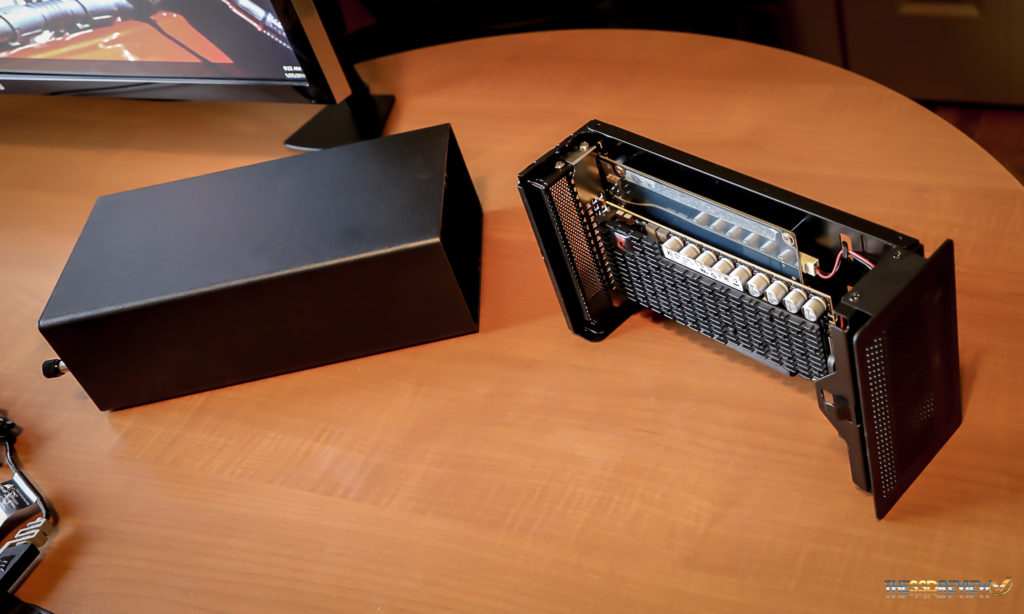REPORT ANALYSIS AND FINAL THOUGHTS
We started this report off discussing how media professionals are in demand of higher performing external storage devices now more than ever. While we would never recommend the Kingston DCP1000 enterprise SSD as an add-in card PCIe 3.0 NVMe SSD for the Mercury Helios 3 PCIe expansion chassis, there certainly are alot of add-in cards that would suit the task, especially considering Thunderbolt 3 is locking down true throughput speeds at around 2.8GB/s. The Kingston DCP1000 is overkill to the highest degree and we through ours in as we had it sitting here on the bench.
At a great price point of $199, the Mercury Helios 3 Thunderbolt 3 PCIe Expansion Chassis is an excellent solution for the storage problem so many are saddled with. It is Thunderbolt 3 and has display host capabilities to accommodate two monitors and is also capable of daisy chain technology that we are used to seeing with Thunderbolt. It is of an attractive design, is virtually silent with its active cooling when running, and comes with a 3-year warranty and excellent OWC support 24/7.
FINAL THOUGHTS
Back in 2012, we reviewed the original OWC Mercury Helios with the Intel 900P PCIe SSD and attained speeds of 800MB/s throughput and 150,000 IOPS. That was massive back then and that same unit sits in my office running today, six years later. I guess this speaks to reliability and it just got pushed aside by the Mercury Helios 3. Quite frankly, if you have a PCIe solution in mind for such storage, I couldn’t recommend this enough. It looks great, is at the right price point and has performance to match.
Check out OWC Mercury Helios 3 pricing at Amazon.
 The SSD Review The Worlds Dedicated SSD Education and Review Resource |
The SSD Review The Worlds Dedicated SSD Education and Review Resource | 


Could you use an Asus Hyper M.2 X16 Card with 4 NVMe sticks, possibly double that and scary raid a few of them?
We don’t have that. Sorry.